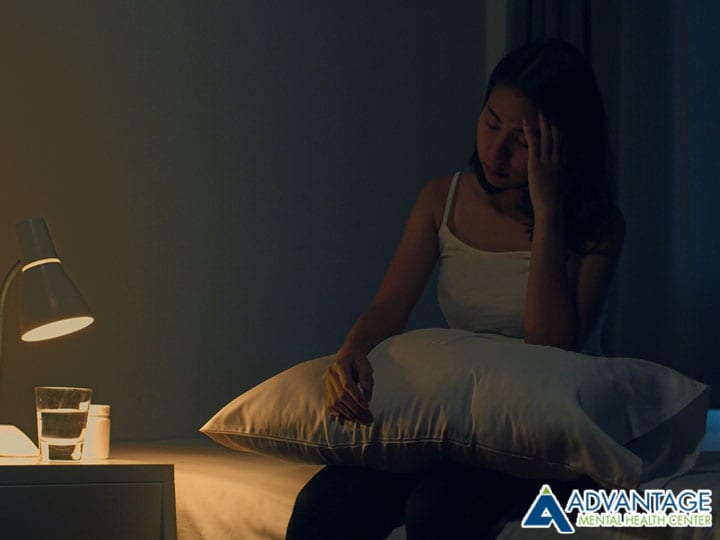If you suffer from depression or are at risk of suffering chronic depression, you might want to consider your sleep habits. Not everyone is able to get into a sleep pattern that is conducive to eight hours of deep and restful sleep. Some people are night owls, staying up late watching TV, reading, or playing on social media. Other people love to get to bed early so they can rise early and get started on their day. The latter is generally regarded as the better path for the person suffering from depression.
Lack of sleep can affect your mental health. Most people would agree that it’s important to your overall health to get a good night’s sleep though for many this is no easy task. The worries of the day can make sleep difficult. Noise can be a factor and too often people believe they can sleep with the TV on. This is generally not true. Sometimes it is physical pain that causes sleep disruption. Whatever the reasons, not getting enough sleep or good quality sleep can add to deeper depression.
People who are able to get a good night’s sleep go through two types of sleep:
- Quiet sleep – which starts with light sleep and moves toward deeper and deeper sleep. Once in the deepest part of that sleep cycle, your body can begin to repair itself and your immune system gets a boost as well.
- Rapid eye movement sleep – also known as REM sleep. During REM sleep, you will likely be dreaming. Your heart rate and blood pressure can go up as well as your body temperature. REM sleep is very important. During REM sleep your learning and memory improves and this can work to improve your mental health as well.
When the sleep cycle is disrupted, it can adversely affect your mental health. Your body can’t repair itself and you may become more susceptible to illnesses. Lack of sleep can lead to negative thoughts which can increase symptoms of depression and even physical illness. When you don’t feel well, it’s hard to be positive, your emotional health suffers. Your stress hormones may increase with lack of sleep or disrupted sleep. Your thinking can become impaired, making it harder to regulate your emotions.
Which comes first, the chicken or the egg?
There is enough evidence of the connection between sleep issues and depression, therefore, it’s reasonable to consider that improving your sleep habits and getting more deep and restful sleep could help you avoid depression or at least lessen the symptoms. Conversely, dealing with your depression may improve your sleep.
Many mental health providers list sleep problems like insomnia and sleeping too much as signs of depression. Your provider, when identifying, assessing, or determining whether you have depression, may consider your sleep habits. He/she will want to know how long you sleep (5 hours? 6? 8?), what hours of the night you sleep (Midnight to 8 am? 1 pm to 9 am?), and how well you sleep (Deeply? Interrupted?).
The question must be considered as to whether sleep is a symptom or a factor in the cause of depression begging the question which comes first? Sleep problems or depression? Mental health providers often have mixed opinions on this, and it is likely that sleep problems may be both a risk factor and a result of depression.
Will getting to sleep earlier help?
There is research that suggests that getting to sleep between one and two hours earlier than your normal behavior can decrease the risk of chronic depression. So, maybe “early to bed and early to rise” is not such a bad idea. Whether or not it makes you wealthy or wise is uncertain, but healthy (or at least healthier both physically and mentally) seems to be at play. The concept of eight full hours of sleep is also a factor and deep and REM sleep is important to mental and physical health.
This concept may seem near to impossible for many who suffer from sleep issues and depression. That’s why working with a licensed mental health provider is paramount. A provider can work with you to determine ways to improve your sleep habits, discover if better sleep can improve your mental health, or if helping you with your depression can lead to better sleep and overall better health.
If you would like to speak to someone about your depression or mental health, please contact us. The mental health professionals at Advantage Mental Health Center would love to speak with you.
Picture Credit: Freepik


